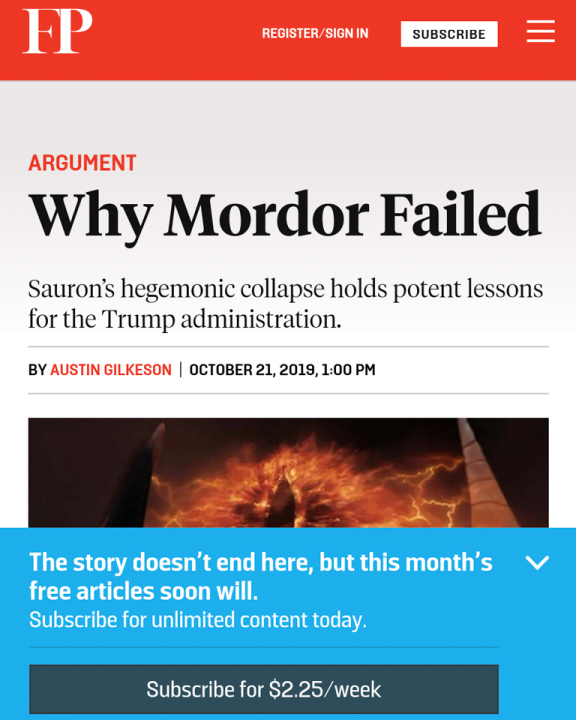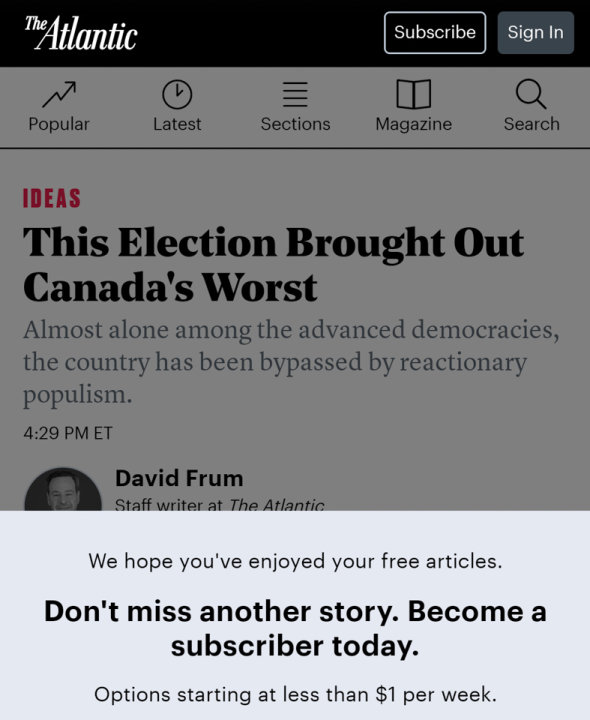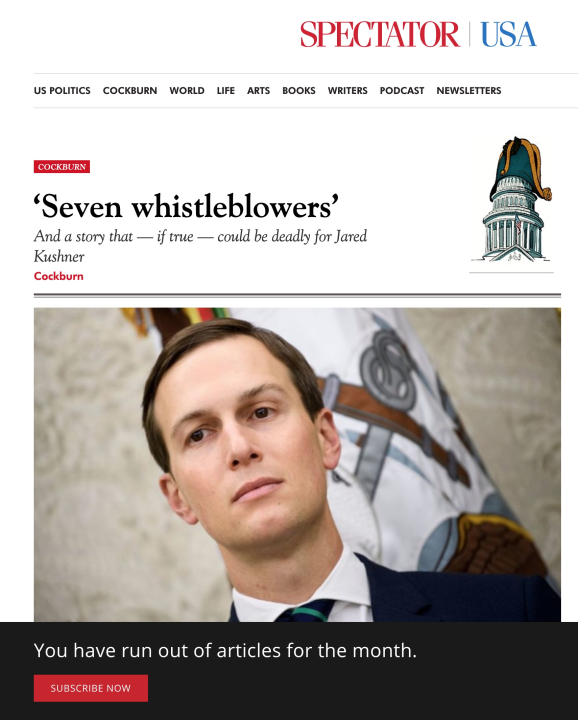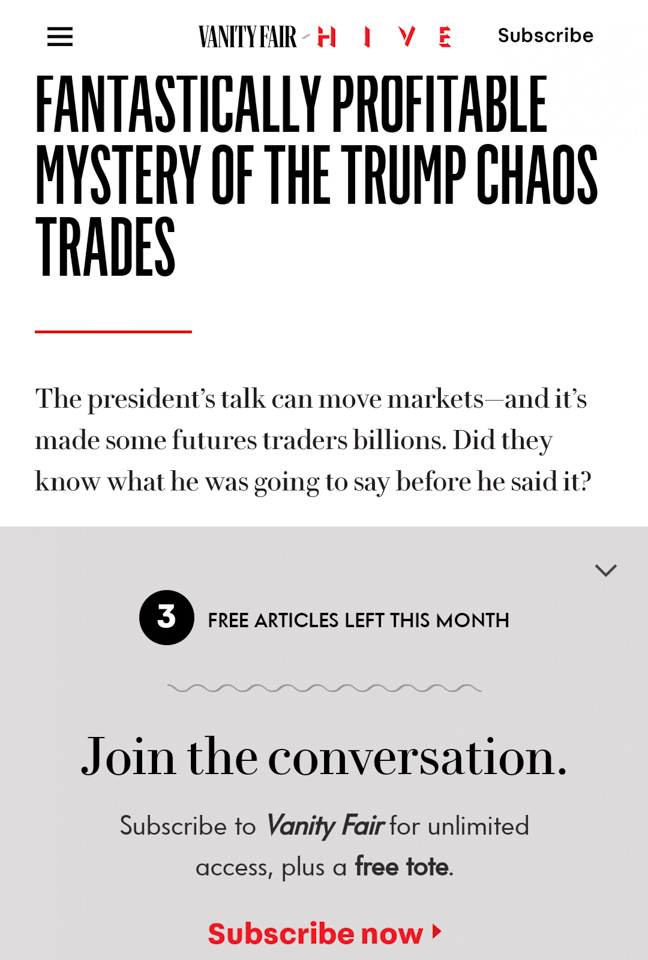
At Canadian Thanksgiving, friends joined us at our cottage for turkey and the fixings. The food (what we made and what they brought) all came out great and we had happy stomachs. I did a lot of the cooking and wanted to check recipes and was brought face to horrified face with the failure of publishing to work on the Internet. The solution seems plain to me and this won’t be the first time I’ve offered it. But something really needs to be done.
What happened was, I wanted to refresh my memory on turkey and gravy. These are dishes one makes regularly but rarely and the details don’t stick to my mind: What’s the meat-thermometer reading for a stuffed bird, and what order do you deploy the drippings, roux, and giblet broth in for gravy?
It turns out the part of the Web where recipes live is a dystopian hellscape. Even though the medium seems made for the message: Lists, pictures, and search are built-in! Not to mention voting and hyperlinks. Anyone who thinks they’ve got a really great gravy procedure can tell the world, and as more people agree, the recipe should become easier to find.
Except for what you find is an SEO battle, red in tooth and claw, where recipe sites stinking of burn-rate terror plead for engagement and as a matter of principle make it really hard to get to that damn ingredients-list and step-by-step. Newsletter! Notifications! Survey! Also-see! Multidimensional parallax-enhanced five-way scrolling Single-Page Applications!
In fact, it bothered me so much that a few days later, I posted a nice simple chicken-kebab recipe just for that good feeling when you use the Web the way it was designed. I took the pictures, I wrote the text, and I posted it all on my own domain, and anyone who follows a link will have the words and pictures in front of their eyes right away, and there won’t be any popups of any kind.
But it’s not just recipes, obviously. It’s a disease that afflicts the larger community of those who try to add value to the Net and to our lives by sharing their stories and pictures and movies and poems and dreams, in the process we generally call “publishing”.
It isn’t working.
“Become a subscriber today!” · My words today are interspersed with pictures of the signs and signals that obscure an increasingly large proportion of the Web’s surface: Imminent-closing-paywall-gate warnings. ¶
I think there is something that is glaringly, screamingly obvious that at this point needs to be said loudly and repeatedly:
This.
Will.
Not.
Scale.
I suspect that a high proportion of my readers know this is true just from the feeling in their gut, but as an exercise in rhetoric let me offer some of the reasons why.
Subscription fatigue is setting in. I’ll make a spending decision, even a big one, quickly and without regrets when whatever it is feels like the right thing. But a subscription, another bill showing up on every credit-card statement… forever?
A very high proportion of the world’s curious-minded well-educated people subscribe to some subset of The Economist, the New York Times, the Guardian, the Washington Post, and the New Yorker. Most of us feel we’re subscribed enough.
There’s a huge class of publications who’ll put out a handful of articles every year that I want to read, but not remotely enough to justify a subscription.
The offers are sleazy. Whenever I read an absurdly low-cost subscription offer, I know the number showing up my bill is going to be a lot higher pretty damn quick.
Obviously it’s not just journalism. What madness makes huge companies think that people will sign up for Netflix and Hulu and HBO and Amazon Video and Apple TV+ and Disney? I’m sure I’ve forgotten a few, and even more sure that more are on the way.
This. Will. Not. Scale.
We need friction somewhere · Information may want to be free, but writers want to be paid. In a world where you can follow any link and read whatever it points at instantly and for free, writers are going to starve. It’s the writers I care about the most, but let’s not forget the designers and copy-editors and fact-checkers and accountants and so on. ¶
People who write and gather and curate recipes want to be paid too.
How about advertising? · The Grand Theory of the Web long said that the money comes from advertising. After all, there’s always been lots of free information out there, and there still is if you’re willing to put up a TV antenna. The reality is that unless you’re Google or Facebook, advertising is deeply broken. My favorite exposition of why ads as they are today don’t work is by Josh Marshall in Data Lords: The Real Story of Big Data, Facebook and the Future of News. It’s important to note that Marshall isn’t arguing that Web advertising is inherently broken; just that the current Facebook/Google business model is so successful that they’re basically skimming all the profit off the top of the system, and in particular ripping the guts out of independent niche publishers. ¶
If you think “I already knew that”, take a minute and read that “Data Lords” piece linked above; it’s not as obvious as you might think.
Marshall is the founder and publisher of Talking Points Memo, one of the best US left-wing political publications, and had the good fortune to recognize the dead-endness of advertising early on and, starting in 2012, made a hard pivot to subscriptions. They’ve been innovative and aggressive and executed well, and it looks like they have an excellent chance of staying in it for the long haul.
What we’re seeing now is that more or less every Web publication has, in the last couple of years, come to the same conclusion and is trying the same pivot. Only it’s obviously not going to work.
Because This. Will. Not. Scale.
Which way forward? · One helpful thing would be to fix advertising. It’s easy to hate the ad business and ad culture but at the end of the day they’re probably a necessary facilitator in a market economy. And hey, if they want to pay part of the cost of the publications I like to read, I’m down with that. I’m not smart enough to have designed a regulatory framework that would restore health to the market, but I don’t think it’s controversial to say that it’d be really great if someone did. ¶
But it seems to me that there’s a more obvious way; let me buy stories one-at-a-time without signing up for a monthly-charge-forever. The idea is this: When I follow a link to a juicy-sounding story in, say, the Minneapolis Star-Tribune or the The Melbourne Age, instead of the avalanche of subscription wheedling, I get a standardized little popup saying “Ten cents to read this”, with several options: Yes or no on this piece, and Always-yes or Always-no for this publication. Someone is operating the service that makes this happen and will do an aggregate charge to my credit card every month.
Suppose the Net lights up because some site has got their hands on Donald Trump’s tax returns. Maybe when I follow that link, the standard popup asks me for a buck instead of a dime.
Subscriptions would still be possible and still make sense if you were reading a lot of pieces from some publication, and could come with benefits — for example, Josh Marshall’s Talking Points Memo offers a super-subscription which subtracts all the ads and makes the pages wonderfully fast and lightweight.
Is that even possible? · It’s not exactly a new idea. Something like it was originally proposed by Ted Nelson in Literary Machines in 1981. The fact that nobody’s made it work so far might make a reasonable person pessimistic as to whether anyone ever will. ¶
Well, I’m here to tell you that on the technology side, we have the tools we need to build this. You could spend a bunch of time devising an Internet Standard protocol for subscription services and wrangle it through the IETF or W3C or somewhere, and that’s not a terrible idea, but I’d probably want to build the software first. With an Amazon-style two-pizza team and modern cloud infrastructure I’d have it on the air in 2020, no problem.
The one design constraint I’d impose would be that this thing would have to work at small scale, not just for the The Bigs. [Disclosure: Yes, I’m a blogger and I’d like us to be able to make a buck too.] But once again, I just don’t see it as hard.
Bootstrapping the business side would be tough because the publishing industry is led by people who not only are not focused on technology but suffer from unrealistic fantasies as to what it is and isn’t. It’d be dead easy for Amazon or Google to offer this as a service, but the publishing community would, rightly or wrongly, assume it to be another way to suck all the money out of the sector.
Maybe there’s a role here for a consortium or institute; or for some large far-sighted publisher with a stable of properties to build this for themselves but with careful attention to making attractive to the rest of the industry?
My advice would be to get working on it fast. Because ads are broken and burn rates are high and pivoting to subscriptions was a really great idea in 2014 but it’s too late for that now.





Comment feed for ongoing:
From: Andrew Ducker (Nov 03 2019, at 23:48)
Scroll.com seem to be working on this.
I'm in their beta, and they're going for "pay a monthly subscription, never see an advert on our partner sites again, and we'll split it between them based on which sites you actually spend time on."
Needs to get a lot bigger, but it's definitely an approach I support.
https://scroll.com/sites
[link]
From: Dirkjan Ochtman (Nov 04 2019, at 00:28)
This is what Blendle was. Although they stupidly started out with all the articles on their own site, they did eventually support "self-hosted" per-article payments, too.
Except, it didn't bring in enough cash to satisfy their needs, so they've shut it down in favor of Blendle Premium, which is more Spotify-like: pay a fixed rate and get access to articles from everyone who allow it.
Like you, I think there should be a good deal in micro-payments for articles. But at least this attempt didn't manage to make it work.
[link]
From: Joe Walton (Nov 04 2019, at 03:53)
Axate (https://www.axate.com/) is exactly this, as a still-operating example. It appears to scale down in practice to tens of cents, but looks like it could still benefit from more network effect.
[link]
From: John Cowan (Nov 04 2019, at 06:11)
Micropayments won't work either: see Clay Shirky's devastating 2000 takedown of them at https://tinyurl.com/case-against-micropayments (that's an Internet Archive URL under the covers). Money paragraph:
"Micropayment advocates mistakenly believe that efficient allocation of resources is the purpose of markets. Efficiency is a byproduct of market systems, not their goal. The reasons markets work are not because users have embraced efficiency but because markets are the best place to allow users to maximize their preferences, and very often their preferences are not for conservation of cheap resources."
[link]
From: Dustin (Nov 04 2019, at 10:41)
It would seem Aitomattic/Wordpress is another entity that ought to be able to pull this off, and isn’t Google/Amazon.
[link]
From: Mike M (Nov 05 2019, at 16:23)
Flattr (https://flattr.com/) was the earliest attempt at this that I saw, dating from 2010. According to the website and wikipedia it's still a going concern, though in a very different form.
The big problem that I see is coverage. You need some tipping point of content creators and consumers to both participate, and there's just so damn many of each. Perhaps the best strategy is to either leverage an existing platform (another commenter mentioned Automattic/WordPress, which I'd agree with) or to target a specific market niche or topic. You need to find a sweet spot where the consumers will adopt a new thing, have a bit of money, and at least a significant number of the content creators aren't owned already by the big guys.
[link]
From: Jarek (Nov 06 2019, at 18:54)
LaterPay.net is another of the many examples of attempts to do this.
Given transaction fees, transactions originating from end users can't really be less than a dollar. Further, given the enter-the-card-number friction, people will feasibly really only pay $1 on their local newspaper site when it has a long story, or maybe on Major Brand sites like The Guardian. To get to "ten cents to read this" when you get linked by a friend, we need a centralized service aggregating the payments (that readers either pre-load or post-pay after reaching a certain balance) that then disburses the funds to the publishers.
The problem is that of network-building - a pay service is most useful when it's got most publishers and most users since it maximizes the chance a user that can pay will land on a site that can accept the payment.
If that's done by a for-profit company, they have all sorts of unfortunate commercial motivations involving rent-seeking, killing off competitors, and paying the publishers less.
If that's done by a non-profit, risks are high they'll get out-competed by a VC-funded for-profit company that's shoveling VC money in order to gain market share so they can proceed to activities mentioned above. There are also unfortunate cultural silos which means Canadian publishers are unlikely to sign up for a service ran by an European non-profit association and vice versa. But I'll be happy to be proven wrong.
If that's done open source, it'll probably work and be probably extremely niche. For that matter it probably exists already.
Browser makers are perhaps the best placed to really implement a system like this. Unfortunately the owner of the currently most-popular browser is an ad company.
-
Tip for anyone thinking of working on this: the most difficult part won't be to build out the user part or the payments part - it'll be to make it easy for publishers to integrate your service, and to sell it to the decision-makers at the publisher (who will have seen some of the companies mentioned in comments here come and go).
[link]
From: Jeffrey Yasskin (Nov 27 2019, at 01:38)
Brave is working on something adjacent to this: https://brave.com/tips/.
[link]